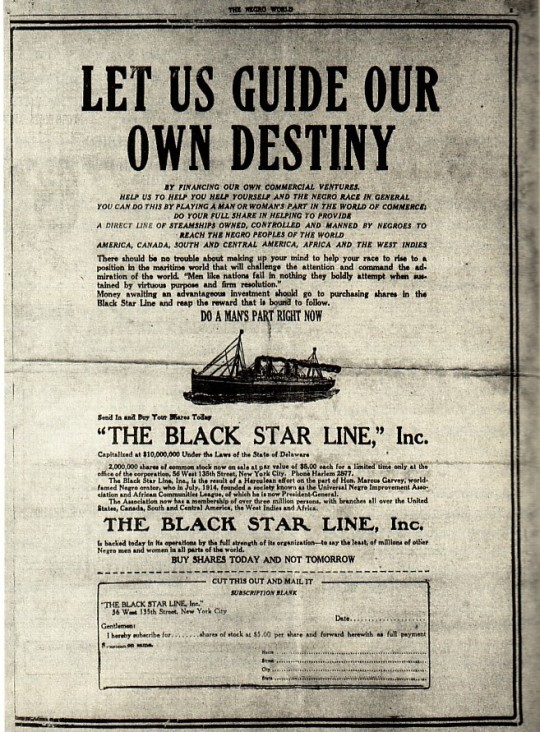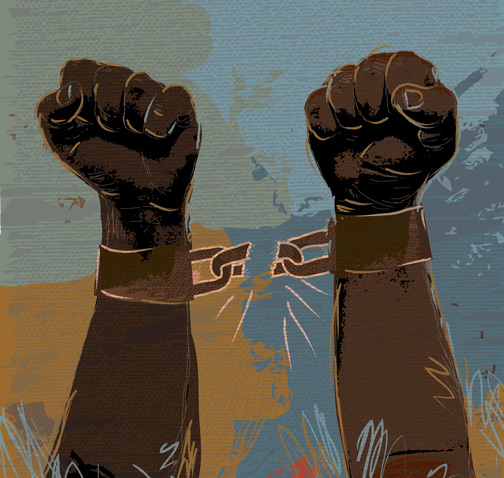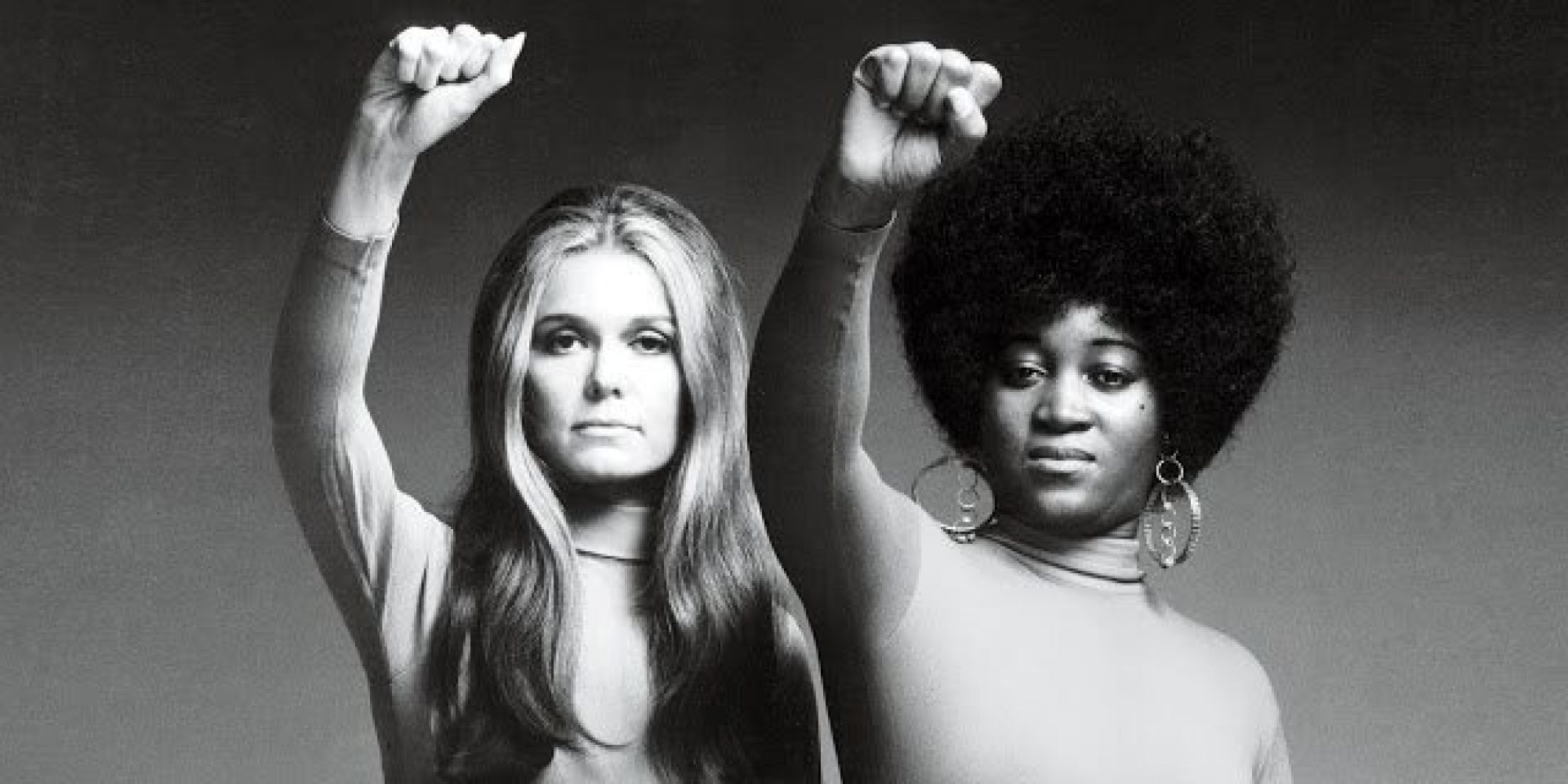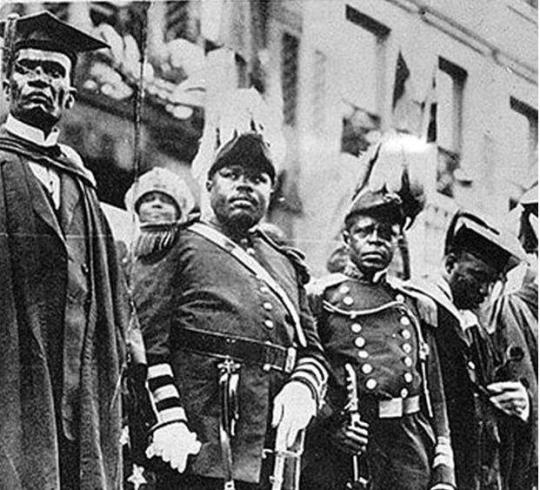
Garvey was 100% correct. His analysis is consistent with Marx’s analysis of Capitalism; even the enemies of Capitalism have acknowledged it’s unparalleled and revolutionary developmental capacity. “Capitalism is a revolutionary force,” no one argues that.
So, we have to understand what “human advancement” has brought us however; global war, massive poverty, nuclear contamination, collapsing ecosystems, the highest rates of income inequality, resource depletion, global warming, mass extinction; “human advancement” is threatening the life sustaining capacity of the of the planet.
Human advancement under White domination means that millions of people have to slave in the 3rd world, and the entire planet has to be polluted so that a tiny White minority of humanity can have iPhones and fly around in private jets (I know it’s slightly more complicated that that, that’s the essences of the global economic system of capitalism).
To fully understand Garvey’s analysis you have to look at his environment. Garvey was organizing our people in the late 19th and 20th century. This is when Whites are approaching the peak of modern industrialization and the majority of Black people were still working on farms, using pre-industrial methods of agriculture. Africa and the Caribbean were still under the death grip of Colonization, and he concluded that the world was leaving the Black man behind.
Garvey mistakenly thought that the White man’s disdain for Africans was rooted in their ignorance of the Black man’s history and the Black man’s potential. He mistakenly thought that if he could organize Black people’s talent, labor, resources, and culture the he could demonstrate our worthiness to ourselves and our worthiness to our enemies and oppressors. He mistakenly thought that once the Whites saw us conducting ourselves as an organized, dignified, and capable people then he would respect us as his equals, allow us to return to our homelands and continue our development free of his harassment and exploitation. Garvey expected the White man to, at the very least, uphold his own standards and laws, even if he hated the Black man; he figured that the White man’s professed love of law, order, commerce, and Jesus would prevent him from continuing his assault against Blacks once Blacks stood us a men and women and demonstrated our self-sufficiency, self-determination, and unwillingness to remain under the domination of other Race.
Garvey envisioned a world where Black men and women had a equal and powerful seat at the table of humanity, that we would have our own, and share with the world our abundance on our own terms instead of the world taking from us. Garvey though Capitalism and Industrialization (of Africa and the African Diaspora) were tools to actualizing that vision.
So, as brilliant as Garvey was, as great an organize as Garvey was, was well laid our and executed Garvey’s plans and agendas were; he had some fatal flaws in his analysis of the enemy and the enemies systems. Garvey didn’t expect the White man to violate all that he professed to hold dear in order to subvert Black people who wanted nothing more than their share, and their basic human dignity. Garvey didn’t understand how threatened the White man and his Systems and Institutions were by Black Liberation.
This is a mistake we’ve been making since the first Europeans set foot on African’s shores, hell we’ve been making this mistake since the first African set foot on Europe’s shores centuries before the first Europe had ever reached Africa. We project our own sentiments and outlooks on others instead of accepting that they have an entirely different world view and approach to the world than we do. We imagine that since there are things we wouldn’t do to other, that they would not do certain things to us.
So, we know that there were fatal flaws in Garvey’s plans, that’s why Garvey’s efforts were thwarted. That dosen’t make Garvey any less an icon, it doesn’t diminish his contributions, but it does mean that we can’t simply duplicate his works and methods, no matter how much we admire Garvey. Garvey’s assessment of capitalism was correct, but he didn’t know the trajectory of Capitalism…, but we do, or we should know better by now.
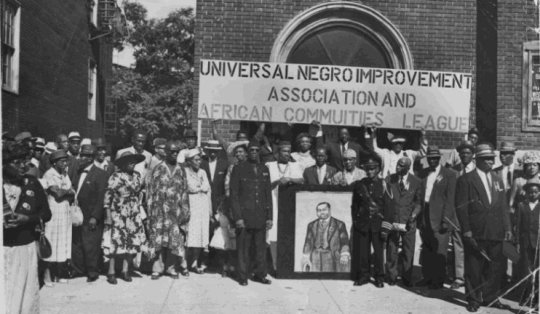
Our ultimate mission is the same, but our analysis needs to evolve, our methods need to advance beyond Gravey’s, if he were here today, he would agree.
Also, the Capitalism Garvey promoted is not the Capitalism of today. Garvey advocated for a regulated, entrepreneurial, and limited industrial capitalism, where as we have unregulated, corporate, Neoliberal, investment Capitalism. Garvey didn’t understand that you can’t regulated Capitalism anymore than you can regulate a cancer or a virus; but we know that now.
When it comes to development and organizing, I’m for looking very critically at the heroes of the past and their works, no matter how much I admire those heroes. We don’t honor them by simply, and uncritically mimicking what they did or attempted to do. We have to build on their foundations, even if that means discarding or reworking some of their analysis and methods.
Garvey couldn’t have repeated what Nat Turner, or Jean Jacques Dessalines did. Elijah Mohammad couldn’t repeat what Garvey did. Kwame Ture and Fred Hampton couldn’t repeat what Elijah Mohammad did. We can’t repeat what any of them did. Our struggle is alive, it is organic, it is growing and evolving. Mimicking the past is stagnation, we have to build on the past, advance from the past. That’s what Revolution is.
We have people in our struggle dressing like Egyptians, and trying to live like they are Khemites, we have people trying to be Garvey-style capitalist, we have people trying to recreate the 60s and be Neo Black Panthers. We can’t relive former glory; we have to build on it! Advance on it. If Imhotep, Fred Hampton, and Garvey were here today, I’m sure they would have modified their tactics, analysis, and methods and continued their Struggle.
I think Scientific Socialism is the way forward, and much of what Garvey advocated for is consistent with Scientific Socialism. I am a Garveyite, and I embrace Garvyian economics, but I seek to strengthen them, not simply mimic them.
